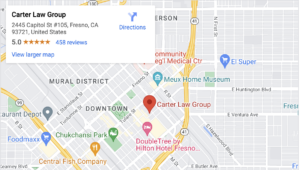Daniel Carter | October 9, 2025 | Personal Injury

Neck pain is often one of the first things people notice after an accident. It’s easy to assume it’s just whiplash or a pulled muscle, but in some cases, the pain may be pointing to a traumatic brain injury (TBI). This kind of injury doesn’t always come with obvious indications. In fact, some of the first symptoms can appear in areas that seem unrelated, such as the neck.
Here are a few subtle signs of TBI to watch out for.
Constant Neck Pain That Doesn’t Improve
It’s normal to feel sore after an accident, but that soreness should gradually fade. If it doesn’t, or if you’re suffering from pain that seems to be getting worse, it could be a red flag. Lingering pain could be due to pressure or swelling higher up in the spine or even inside the skull.
TBIs often go hand in hand with soft tissue damage and inflammation. If the brain has been shaken or jolted, the neck muscles and nearby nerves may also be affected.
Headaches That Start at the Neck
Headaches that begin in the neck and climb upward can be more than just tension or stress. These are called cervicogenic headaches, and they’re often tied to brain injuries. The pain might start at the base of your skull and wrap around your head like a tight band.
Tingling or Numbness That Radiates
The sensation of pins and needles in your arms, hands, or shoulders could be more than just nerve irritation in your neck. It may be connected to spinal cord trauma or even swelling due to a brain injury.
These symptoms often appear when nerve pathways are compressed or disrupted. In some brain injury cases, neck swelling or vertebral misalignment can interfere with nerve signals, causing unusual sensations in areas far from the original impact point.
Dizziness or Balance Issues
If your neck pain comes with dizziness, unsteadiness, or a general feeling of being “off,” don’t ignore it. The brain and inner ear are responsible for controlling balance. If either system is disrupted by trauma, it can start sending mixed signals to the rest of the body that result in dizziness or balance issues.
Even a mild TBI can cause you to feel disoriented or lightheaded. Add in neck pain, and it’s a possible sign that your brain has sustained more damage than you realized.
Difficulty Focusing or Thinking Clearly
Neck pain alone might not raise alarm bells, but when it comes with brain fog, memory lapses, or trouble concentrating, you should take it seriously. These symptoms are often overlooked or blamed on stress after accidents, but they could be signs of a concussion or more severe TBI.
The brain doesn’t always react immediately after trauma. Some symptoms may take hours or even days to show up. If they’re dismissed as “normal,” the victim may miss the chance to understand what’s really going on.
Unexplained Emotional Changes
Irritability, anxiety, or depression without a clear reason can also be indicative of a TBI. The neck pain might be what’s keeping you up at night, but any mood shifts that seem to come out of nowhere are worth paying attention to.
The brain governs emotional regulation. When it becomes injured, the result can be emotional swings that feel totally out of character. These feelings can be confusing and deeply frustrating.
Contact Our Fresno Personal Injury Lawyers at Carter Law Group for a Free Consultation
Neck pain after an accident can feel like just another annoyance to deal with, but in some cases, it might be the first sign of a traumatic brain injury. Understanding the connection can make all the difference in recognizing the true impact of the trauma and getting the treatment you need.
Call Carter Law Group today if you think your neck pain was caused by someone else’s negligence. Our Fresno personal injury lawyers offer free consultations and can help you determine your best next steps.
Carter Law Group
2445 Capitol St #105, Fresno, CA 93721, United States
(559) 485-1212

